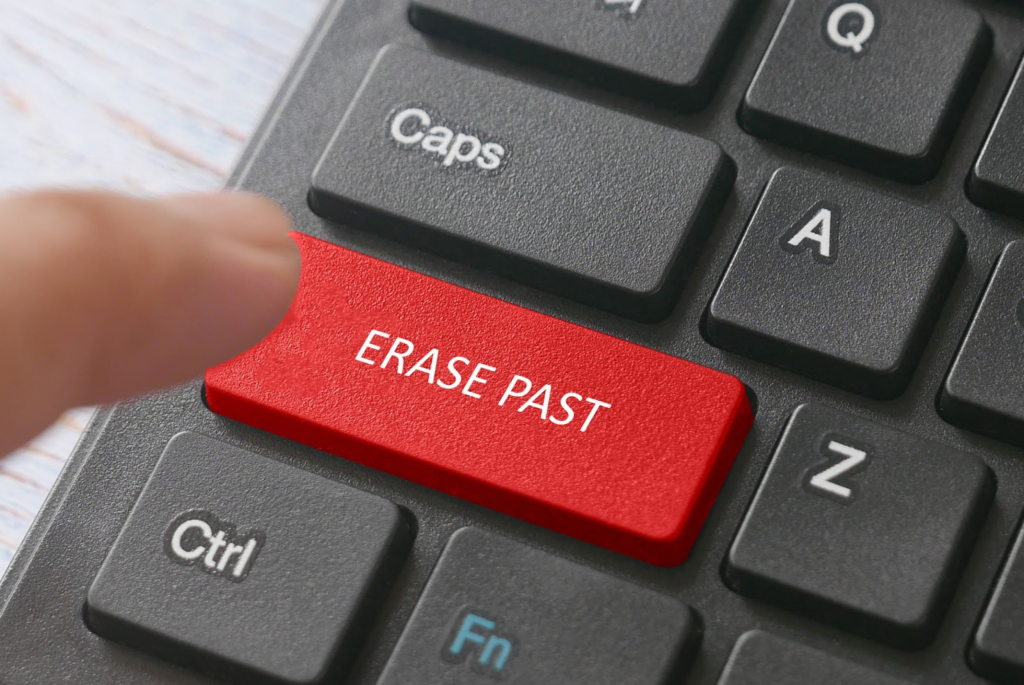A criminal record can limit the scope of your life in a number of ways. From finances and education, to housing and employment, an arrest or charge can severely impact you and your family for years to come.
You must fight to expunge or clear the record of your offense. The informative guide below will help you understand what it takes to expunge your misdemeanor in Texas.
Consequences of Not Expunging a Misdemeanor in Texas
In the minds of certain individuals, a misdemeanor may not sound like a serious offense. This assumption couldn’t be further from the truth. A misdemeanor can negatively impact your entire life, both professionally and personally.
Both the legal and collateral consequences that result from a misdemeanor have the potential to strip you of certain rights, limit your access to a number of resources and make life more difficult for you both at home and on the job. Some consequences of a misdemeanor include:
Career/Job
You may find it difficult to obtain certain positions, especially those dealing with children, or adults in need of care for mental or physical conditions. Government work of any kind will be increasingly difficult to secure. Even with common private sector jobs, a tainted background check will often push an employer away from you toward a less risky choice. You may even lose the job you currently have.
Housing/Mortgage
Unfortunately, landlords frequently steer away from renting to individuals with misdemeanors or other offenses on their record. This becomes an even greater problem when you have a family to take care of and can’t find a home to rent. Also, if your current landlord finds out about a new criminal charge, they may even evict you and your family from your current residence.
A misdemeanor can also impact your ability to secure a traditional loan. This will not only limit your family’s access to a home that might be a better fit but also limit your ability to take advantage of the equity and wealth often created by home ownership. Those looking to invest in real estate may need to seek out certain hard money lenders who unfortunately charge higher rates because of their criminal history.
Travel
Every country has different standards for various crimes. Consequently, certain offenses that the United States considers minor, may be more serious in another country. Because of this, certain nations may deny you entry. This limits not only vacation and leisure activities, but your ability to work abroad.
Denial or Revocation of Licenses
Prior criminal activity can trigger a negative response within various government and private organizations. In response, you may be unable to renew your driver’s license, obtain commercial driving permits, renew a business license or obtain a teaching license or any number of other professional and vocational licenses or permits. A misdemeanor might also lead to the revocation of your gun ownership rights.
Access to Financial Resources
A criminal history can definitely limit your access to various financial resources, including subsidized housing, welfare benefits, subsidized or traditional bank loans, credit cards, auto loans and more.
Education
Pursuing a quality education can become increasingly difficult, as several schools may look unfavorably on your history, while gaining approval for student loans becomes more difficult.
Custody
One of the last things you want is to lose your ability to spend time with your children. Unfortunately, criminal charges may put new restrictions on your custody and visitation rights, something that affects both you and your children.
Immigration
Whether you’re in the United States just working for a while, spending time with family, or working toward citizenship, a misdemeanor can put you at risk of losing your protected immigration status.
The Solution
With all these consequences it would be easy to feel discouraged, even hopeless about your future. Thankfully, with the right attorney, you can expunge certain criminal records in Texas, ultimately freeing you from these negative consequences.

Texas Criminal Record Expungement Law
In Texas, you have two options for expunging or clearing a criminal record, expungement and nondisclosure. Under special circumstances you may even have a third option, judicial clemency, which will be explored later in the article.
An order of nondisclosure is a court order prohibiting public entities, including courts, clerks of the court, law enforcement agencies, and prosecutorial offices, from disclosing certain criminal records.
Nondisclosure is essentially a partial sealing of specific portions of one’s record. An order of nondisclosure legally frees you from having to disclose certain information about your criminal history in response to questions on job applications.
With permission, certain entities may still gain access to these records under special circumstances. This includes government agencies like the FBI, courts, various licensing departments, and law enforcement agencies conducting criminal investigations.
Also, any private or government organization looking to hire you for work involving intelligence, sensitive information, or the oversight and care of potentially vulnerable individuals, like children, or adults with mental or physical disabilities, may gain access to your sealed records.
Expungement (expunction), on the other hand, is the erasure of one’s records. With an expunction order, you do not have to mention any related arrests or charges when any individual or entity makes a request.
Exceptions do exist. In general, local law enforcement agencies won’t have access to these records. However, in circumstances involving other criminal investigations, for new crimes committed by you, or when applying for highly sensitive positions, certain organizations may receive a court order to access these records.
Who Is Eligible for Expunging a Criminal Record in Texas?
Record expungement extends only to those whose charges do not lead to conviction, individuals acquitted of all charges and those individuals pardoned of their crimes. Specifically, the Texas Code of Criminal Procedure describes the conditions for qualification in the subsection below:
Art. 55.01. RIGHT TO EXPUNCTION.
(a) A person who has been placed under a custodial or noncustodial arrest for commission of either a felony or misdemeanor is entitled to have all records and files relating to the arrest expunged if:
(1) the person is tried for the offense for which the person was arrested and is:
- (A) acquitted by the trial court, except as provided by Subsection (c);
- (B) convicted and subsequently:
(i) pardoned for a reason other than that described by Subparagraph (ii); or
(ii) pardoned or otherwise granted relief on the basis of actual innocence with respect to that offense, if the applicable pardon or court order clearly indicates on its face that the pardon or order was granted or rendered on the basis of the person’s actual innocence; or
- (C) convicted of an offense committed before September 1, 2021, under Section 46.02(a), Penal Code, as that section existed before that date.
With nondisclosure, there are specific requirements related to each type of crime. However, all applicants must adhere to the following six rules to qualify for an order of nondisclosure:
- The court must not place you on deferred adjudication community supervision for the offense in question.
- You must have successfully completed deferred adjudication. This means you cannot break any rules or violate any conditions of your community supervision (probation).
- The offense in question must be an offense for which the law permits an order of nondisclosure. Certain sex crimes, violence against family, and capital crimes like murder and human trafficking will disqualify you from a possible order of nondisclosure.
- You must not have any disqualifying criminal history. Specifically, you must not have committed any crimes in the past for which the present commission would disqualify you from nondisclosure.
- You must wait a certain period of time following the court’s order of dismissal and discharge to seek an order of nondisclosure. If the offense is a felony, you may not file a petition for an order of nondisclosure until the fifth anniversary after your dismissal and discharge. If the offense is a misdemeanor under Chapter 20, 21, 22, 25, 42, or 46 of the Texas Penal Code, you may file a petition for an order of nondisclosure only after the second anniversary of your dismissal and discharge. For all other misdemeanors, there is no waiting period.
- The court must not convict or place you on deferred adjudication for any additional criminal offenses from the start of your period of deferred adjudication to the date of your order of dismissal and discharge plus any applicable waiting periods.
There exist certain crimes for which expungement is not an option. Some of these crimes include:
- Capital murder (PC 19.03)
- Aggravated robbery (PC 29.03)
- Aggravated kidnapping (PC 20.04)
- Use of child in the commission of an offense (HS 481.140)
- Indecency with a child (PC 21.11(a)(1))
- Aggravated sexual assault (PC 22.021)
- Sexual assault (PC 22.011)
- Injury to a child, elderly individual, or disabled individual (PC 22.04(a)(a)) – when the offense is punishable as a first-degree felony and the victim was a child
- Sexual performance by a child (PC 43.25)
- Criminal solicitation (PC 15.03) if punishable as a first-degree felony
- Certain drug offenses (HS 481.134(c)(d)(e)

Your Options
Based on your unique situation and the nature of your offense, if you do not qualify for record expungement, you may qualify for either the aforementioned Order of Nondisclosure or Judicial Clemency, otherwise known as a Conviction Set Aside.
Again, if you successfully completed your period of deferred adjudication and did not commit a crime for which the state prohibits nondisclosure, you may pursue the sealing of your records through a petition for nondisclosure.
If you received a criminal conviction and served a period of straight probation (not deferred adjudication), you may qualify for a set aside. Article 42.12, Section 20 of the Texas Code of Criminal Procedure establishes the legal basis for judicial clemency.
The process discharges a person, presently serving a period of straight probation, from the remainder of their probation without receiving a final conviction. Additionally, with a set aside, it may be possible to restore your second amendment rights (gun ownership), an important freedom for many citizens.
The judge may set aside a verdict or allow the defendant the freedom to withdraw their guilty plea. The judge then dismisses the original accusation of criminal wrongdoing, releasing the defendant from all penalties. Proof of this set aside will be available to judges in the future if the individual in question commits further crimes.
You may request judicial clemency once you have completed at least one-third of your probation or up to 30 days (in some counties) after your discharge from probation . Certain crimes prohibit access to judicial clemency, including:
- intoxication-related offenses under Chapter 49 of the Penal Code;
- offenses requiring registration as a sex offender as defined by Chapter 62 of the Texas Code of Criminal Procedure;
- any 3g offense.
Duration of the Misdemeanor Expungement Process in Texas
The process of expungement can take a considerable amount of time. There are mandatory waiting periods for each offense level. For Class C misdemeanors, you must wait 180 days from the date of your original arrest before you can file for expunction. For Class A and B misdemeanors, you must wait a full year. For felonies, the wait time is three to five years.
Once you have applied, it may take anywhere from 30 to 90 days for the court to schedule a hearing. Once the judge issues an order of expunction, agencies and organizations will have up to 180 days (six months) to delete/destroy your records and update their database. You should expect the entire process to take several months to complete.

The Best Strategy to Expunge a Misdemeanor in Texas
Remember, a criminal record can severely limit your options. You can expect to encounter several restrictions on your individual rights and your access to resources necessary for success in life.
The answer to this dilemma is to hire an experienced attorney and fight to get your record expunged. Whether you qualify for expunction, nondisclosure or judicial clemency, it is imperative that you act now and do everything you can to clear your record. Don’t hesitate. Call an attorney today.




